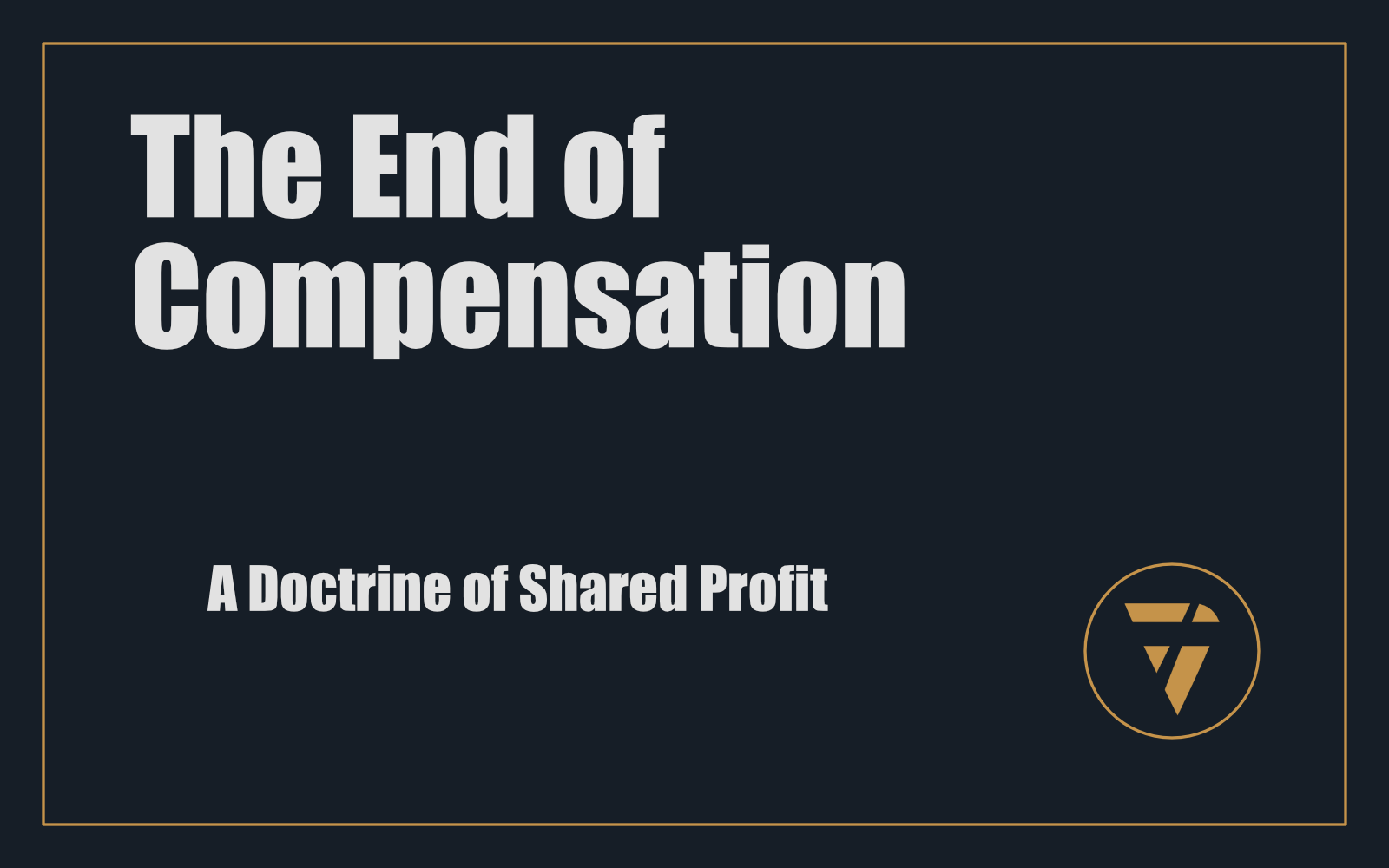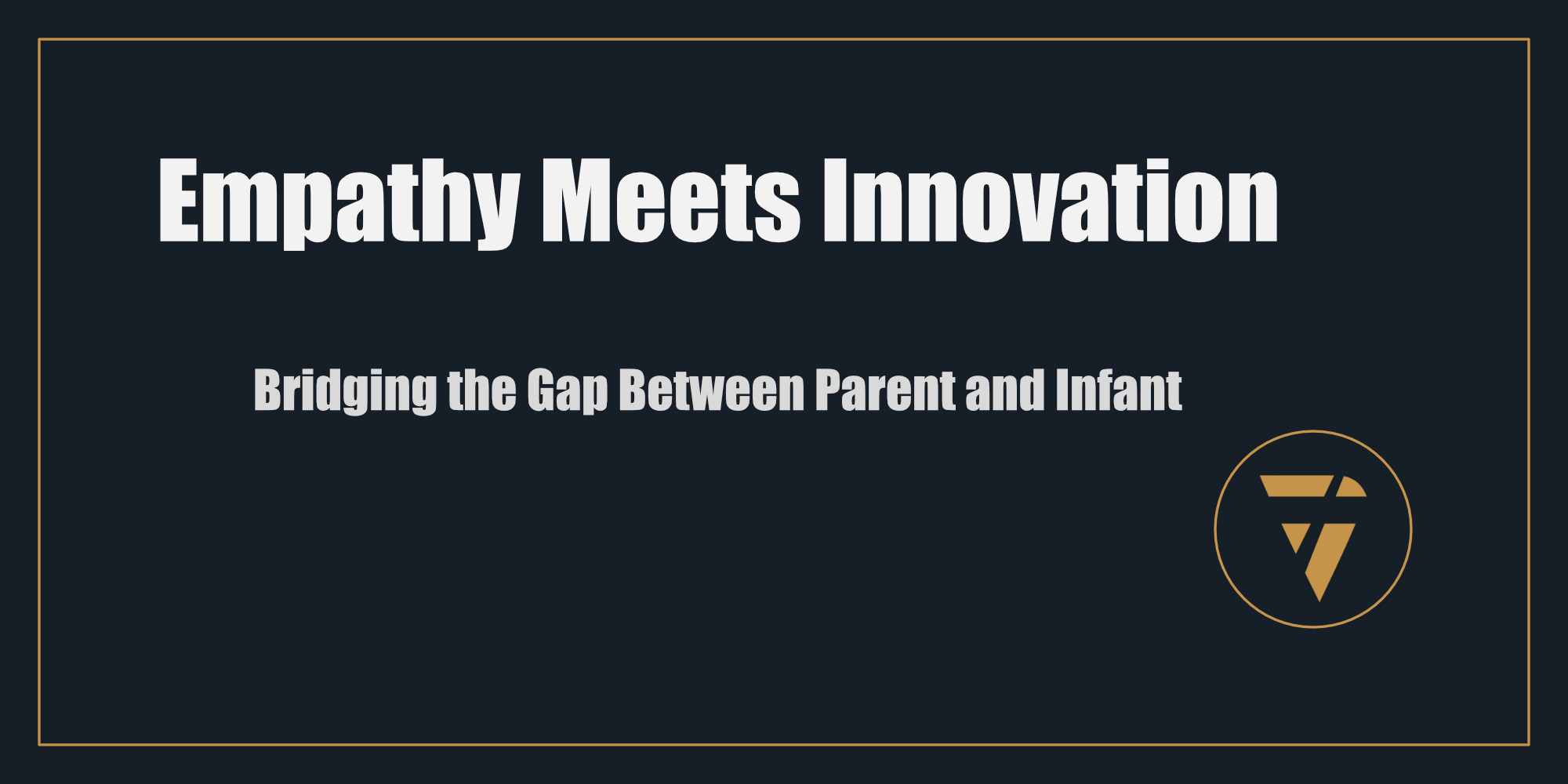The End of Compensation

A Doctrine of Shared Profit
There is a particular sigh that escapes me when someone serious, smart, incredibly wealthy, and even forward looking shares an insight about a challenge that they've just been accepting, instead of solving... for decades. When the solution is... easy.
Up until this morning, Preparent was my best example.

Now it's comp.
Scott Galloway said on ProfG Markets today that compensation is the most challenging aspect of business, and can usually be traced back as the cause of failures. It's not just that. It's a tax on value, disguised as structure.
20:17
"I find compensation is the most difficult part of business."
Scott Galloway
Scott,
You’re half right.
Yes — compensation is the root of dysfunction. Yes — it destroys cultures, corrupts priorities, fractures alignment, and silently chokes otherwise viable companies. You’re not alone in seeing this. But you stayed in it. You diagnosed the disease and kept working inside the hospital that causes it.
This Proconsul model doesn’t improve compensation. It deletes it.
Profitism — the architecture deployed through IPD/SP (Integrated Project Delivery / Shared Profit) — does what legacy business design refuses to: it makes every participant a partner. That includes owners, operators, investors, marketers, janitors. Not metaphorically. Structurally. Mathematically. Every functional contributor participates in the same profit formula, scaled by role, not rigged by rank.
Here’s what this does:
- It deletes salary negotiation — there’s nothing to negotiate. Everyone shares in the pool their work expands.
- It ends bonus gamesmanship — no incentives are needed. Profit is the incentive, and it’s distributed in the open.
- It neutralizes power imbalance — you don’t have to climb to be rewarded. You only have to contribute.
- It removes the overhead of HR compensation design — which is an entire industry built to preserve inequity.
- It converts teams into co-owners of consequence — not in stock, but in share of outcome.
When this system is implemented, compensation is no longer a “function of business.” It’s a vestige. A distraction from real leverage. Businesses no longer need to “manage” pay. They build profit. And all value creators eat.
So if you want, Scott — you can stop talking about the problem. You’ve diagnosed it for decades. Time to delete it.
Here’s your lever: pick one business you advise, and implement IPD/SP. Track the alignment. Track the output. Track the profit.
And then decide if you ever want to build the old way again.
Ready when you are.
B
The End of Compensation: A Doctrine of Shared Profit
Scott Galloway says compensation is the hardest problem in business.
He’s right.
And that should terrify you. Because if the smartest operators in the world can’t solve the most basic lever of enterprise—how humans are rewarded for output—then what are we all doing?
Compensation isn’t a department. It’s not payroll, or HR, or equity tables. It’s the scaffolding beneath motivation, trust, power, and scale. When it breaks, it doesn’t show up as a failed comp plan. It shows up as drift. Politics. Turnover. Burnout. Sabotage. And eventually—collapse.
Scott has spent a career naming the symptoms. But we’re not here to name. We’re here to delete.
So let’s delete compensation.
Let’s replace it with what works.
Let’s build the machine that cannot lie.
The Lie of the Ladder
Traditional compensation models rest on a fantasy: that contribution can be cleanly measured, neatly isolated, and fairly rewarded by those with power.
But here’s what really happens:
– Titles get inflated while value erodes.
– Loyalty is weaponised to underpay the indispensable.
– Owners hoard upside while workers cushion risk.
– Power dictates pay—not output, not impact, not consequence.
This isn’t capitalism. It’s feudalism in a hoodie.
And the cost isn’t just moral. It’s structural.
You build a house on this rot, and every board warps.
Shared Profit Is Not a Perk. It’s an Operating System.
The Proconsul profit model does not fix compensation.
It removes it.
Compensation, as a category, implies a top-down flow. A decision-maker. A judge of worth. A gap to be filled between effort and reward.
Shared profit eliminates that premise.
Under this doctrine, the business is the vehicle of distribution. Revenue enters. Costs are paid. Then profit—pure, clarified profit—is distributed across all functional roles. Equally.
Not “fairly.” Not “equitably.” Equally.
Because power is not a function. Ownership is not a contribution class. Risk, when shared, must pay in kind.
This is not communism. It’s compression. Pure capitalism.
Remove subjectivity. Remove politics. Remove distortion.
Install a structural loop where everyone in the machine owns the outcome, feels the flow, sees the ledger.
And suddenly, something extraordinary happens:
– The politics vanish.
– The noise drops.
– The quality lifts.
– The team governs itself.
Because when everyone shares the win, they protect the game.
This Is What Happens When You Deploy It
I’ve seen what happens when you replace compensation with shared profit.
Teams align in days, not quarters.
Projects move without meetings.
Conflict resolves itself through ledger truth, not whisper campaigns.
And operators stop begging for raises—because they’re building the thing they own.
Here’s the punchline:
When profit is shared equally, performance becomes sovereign.
Not incentivised. Not gamified. Sovereign.
Every decision is made through a single lens: Will this help us generate more profit, faster, together?
No politics.
Just leverage.
What About Owners? Investors? Founders?
Good. Let’s get honest.
If you want to own the upside alone, you own the risk alone.
But under shared profit, that equation equalises.
You still get your return. But not because you stood still and watched.
You earn alongside everyone else.
The capital you invested? That’s your function.
The expertise you bring? Function.
The role you play in operations, sales, leadership? Function.
Each one earns equally at the point of profit. Because each is necessary. None is supreme.
If you need to hoard to feel secure, you’ve already lost.
Compensation Doesn’t Need Reform. It Needs Removal.
Scott’s right that compensation is the core problem.
But wrong that it must persist.
Here’s what he missed:
The act of compensating is the act of mistrusting.
It’s an admission that someone must control value from above, rather than engineer value through result.
Proconsul replaces that premise with a system that doesn’t lie:
– Everyone sees the ledger.
– Everyone owns the output.
– Everyone earns from the same source.
This doesn’t create equality. It creates clarity.
And clarity is what scales.
Deploy This. Or Don’t. But Know What It Costs.
If you’re still paying by role, by seniority, by “what the market says,” here’s what you’ve installed:
– Drift
– Mistrust
– Complexity
– Resentment
– Politics
– Performance plateaus
And when the next downturn hits, it’s not the model that breaks. It’s the people.
But install shared profit, and something else happens:
– Every team member becomes a strategist.
– Every expense is scrutinised by the group.
– Every win is felt, and every loss is investigated—not punished.
– Retention stops being a perk. It becomes default.
This is not about fairness.
It’s about firepower.
You either weaponise your people with clarity—or you drown them in confusion and call it culture.
This Is What Comes Next
You want to scale?
Start with truth.
Burn your comp plan.
Install shared profit.
Show the ledger.
And then?
Build.
Together.
No noise. No drift. No games.
Just profit.
Shared. And sovereign.
That’s not theory. That’s architecture.
Now decide:
Will you keep trying to compensate—or will you finally start earning?
This is what I’m working on. Tell me what you think, I enjoy the conversation! Subscribe and follow the work in real time.
Thanks!
B

Compensation isn’t broken. It was a lie from the start.
Every raise, bonus, and equity grant is a tax on trust—paid to preserve control, not reward contribution.
Shared profit doesn’t fix comp. It deletes it. Permanently.
PS -







